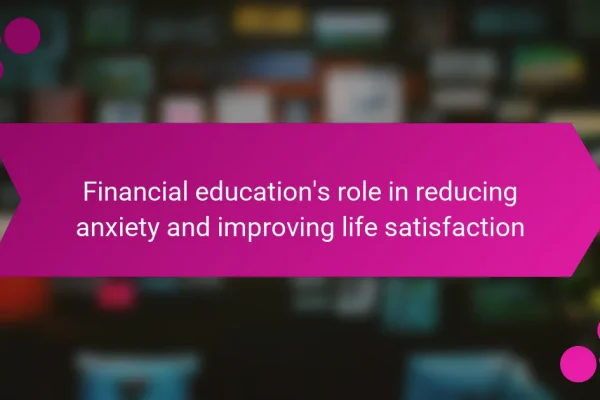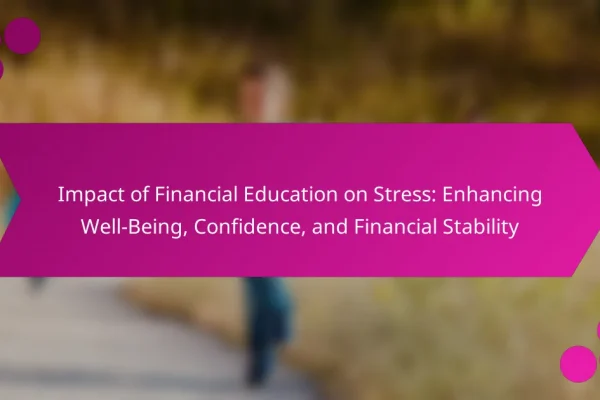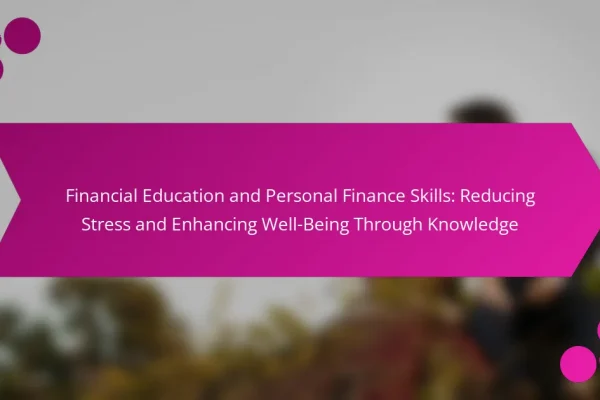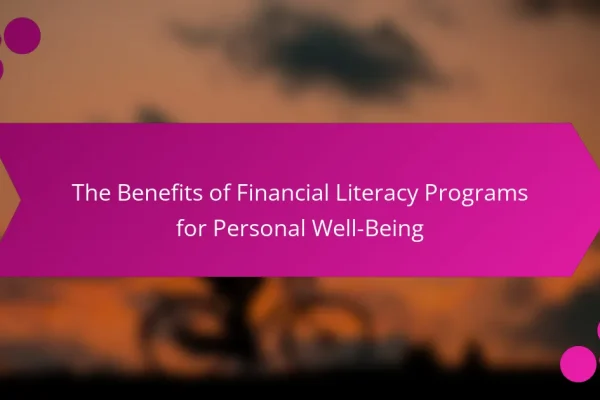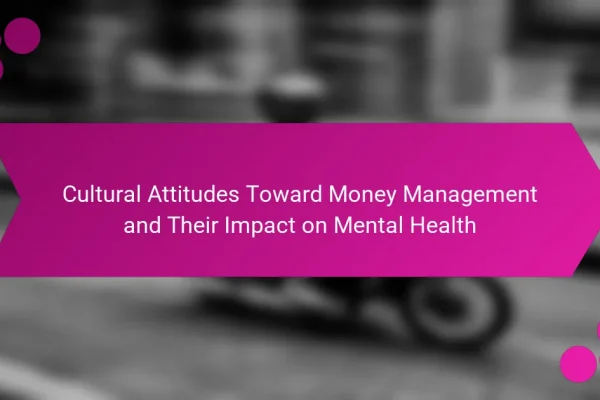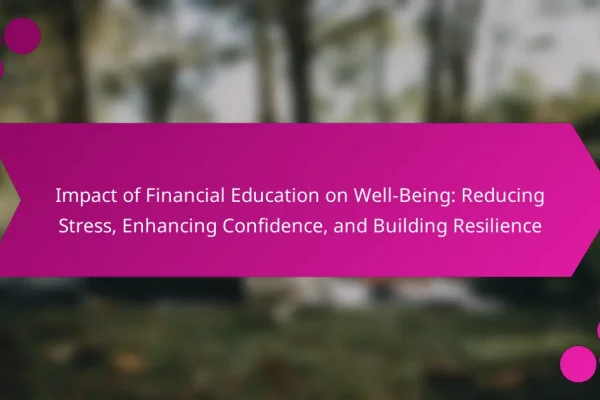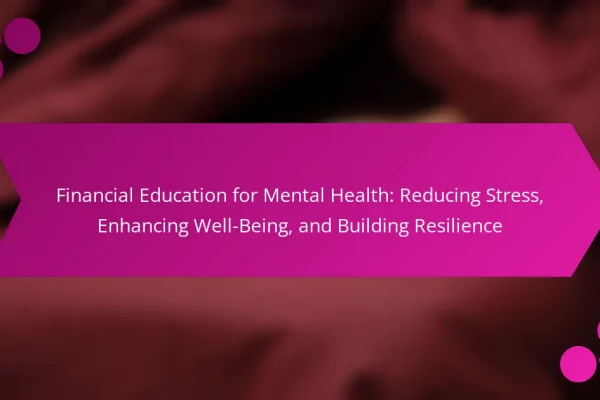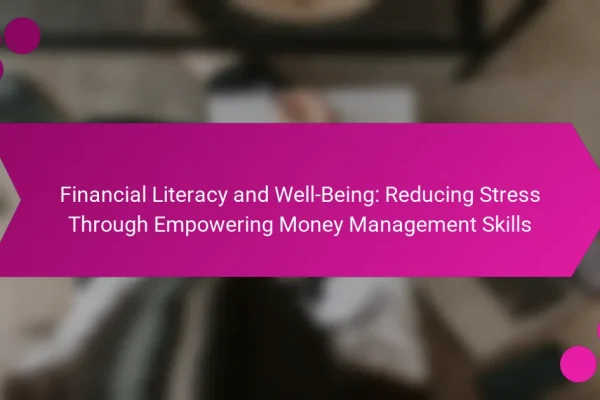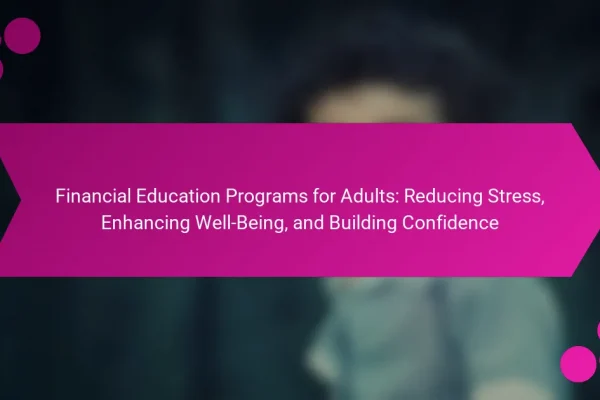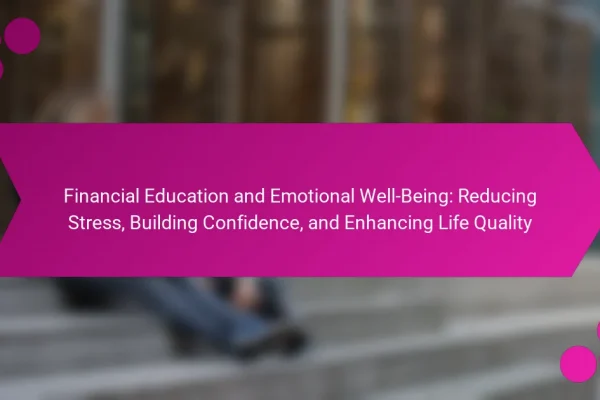
Financial Education and Emotional Well-Being: Reducing Stress, Building Confidence, and Enhancing Life Quality
Financial education significantly enhances emotional well-being by reducing stress and building confidence. It empowers individuals to manage budgets, set financial goals, and navigate economic uncertainties. Improved financial literacy leads to lower anxiety levels and higher life satisfaction. Practical strategies, such as engaging in workshops and tracking expenses, foster resilience and promote a better quality of…
